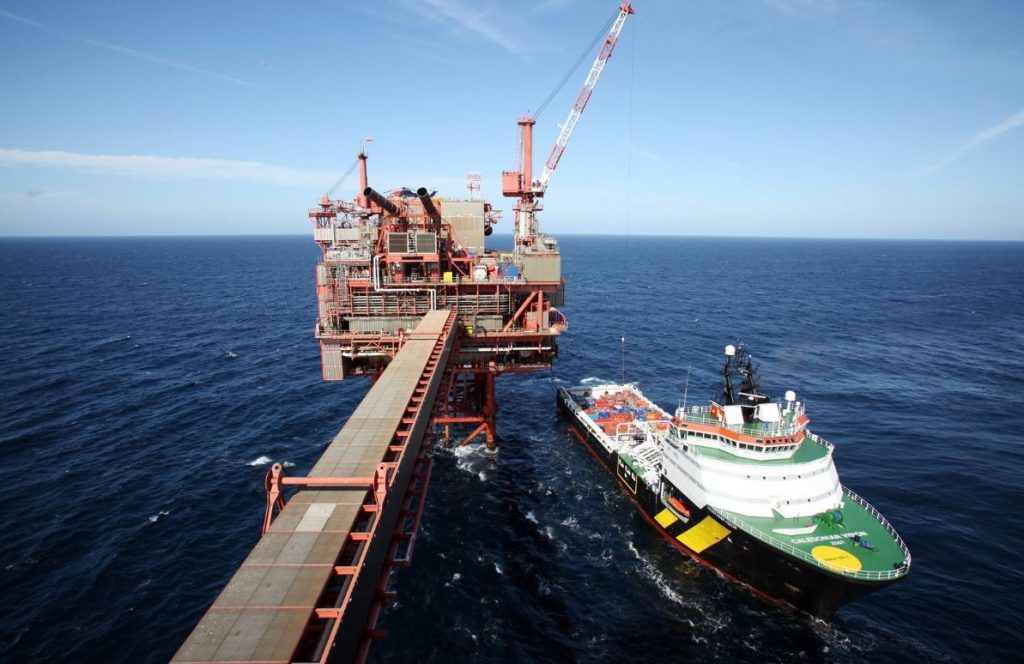
UK offshore oil and gas companies have taken a small backward step in their efforts to work together more effectively, a key survey suggests.
An index measuring collaboration across the sector has registered a drop for the first time since its launch five years ago.
The score – which dropped to seven in 2019 from 7.1 last year – was published in an annual review by Oil and Gas UK (OGUK) and professional services firm Deloitte.
Though the decline is small, it should serve as a “warning” that action is needed to prevent the sector slipping back into “old ways” of working as North Sea activity picks up.
The study did note that the industry had come a long way since 2015 and that support for collaboration was the norm.
But OGUK and Deloitte said companies had to find “simpler and more effective” ways of working together if they are to avoid a “skills and equipment crunch”, which could cause costs to “spiral out of control”, as experienced in previous cycles.
The report alluded to tension between operators and oilfield service companies who are still “reeling” from years of “aggressive” cost cutting by clients.
Operators noted that suppliers were “less engaged and less willing” to collaborate, which contributed to the index going down slightly.
Some survey respondents said parts of the supply chain were suffering from “fatigue”.
It means some oilfield service firms can no longer reduce their prices, while others are disappointed that operators have not lived up to their promises to find “new ways” of working on projects.
Sir Ian Wood’s review of UK oil and gas recovery, published in 2014, identified the crucial role collaboration would play in transforming performance.
Collaboration has since become something of a buzzword in oil industry circles, but Deloitte and OGUK insisted the term – and their index – is important.
They said companies in the top quartile tend to have some of the lowest operating costs and are more likely to complete projects early and below budget.
The index number is an aggregation of ratings that respondents allocate partners for their approach to collaboration – on a scale of one to 10.
Despite the lower index score, OGUK and Deloitte said support for collaboration remained strong.
Over the last five years, an average of 90% of respondents said they were committed to collaboration.
During that period, cost reduction has been as the main reason for collaboration, but the focus appears to be shifting, with a desire for knowledge sharing becoming an increasingly important driver.
The report said many operators had finished the “aggressive” cost reduction programmes introduced in the wake of the oil price slump, which struck in 2014, and are now looking for value by investing in innovation.
However, the index score is not improving as much as expected and suppliers want to see working practices change more quickly, OGUK and Deloitte said.
Companies are still struggling to turn “strategy into action” and make serious progress on improving relationships.
Only a small number of people within organisations have the ability to form and maintain collaborative relationships, while companies are also being held back by outdated ways of working and complex procurement processes.
Many barriers can only be overcome with substantial investment, effort and time.
And while a lot of companies are making progress, ways of accelerating the rate of change must be found.
Report authors said digital technology could hold the answer. Most respondents claimed to understand digital’s potential, but only 52% of operators have a digital strategy.
Graham Hollis, office senior partner for Deloitte in Aberdeen, said further empowerment and incentives to encourage collaboration throughout businesses was the order of the day.
Mr Hollis also urged firms to come up with strategies and figure out where within their organisations collaboration would have the greatest impact.
Matt Abraham, supply chain director at OGUK, said: “There’s still significant work to be done to transform the working relationships between the supply chain and operators to ensure we establish a more sustainable industry for the future.”
This year’s survey, conducted between July and September, attracted a record response rate, with 206 completed, up 63% from 2018, while index feedback also rose.
Recommended for you

